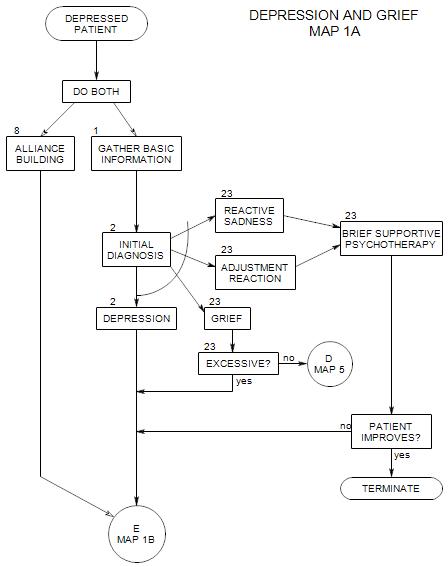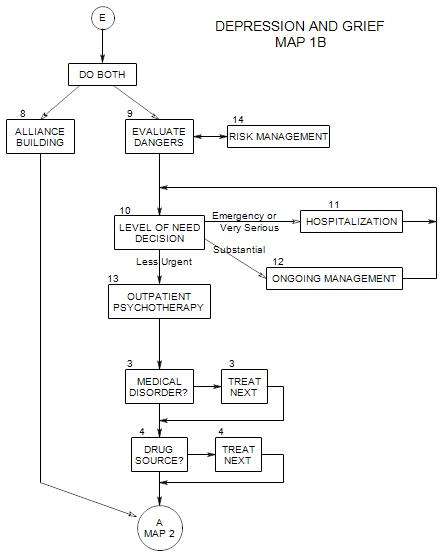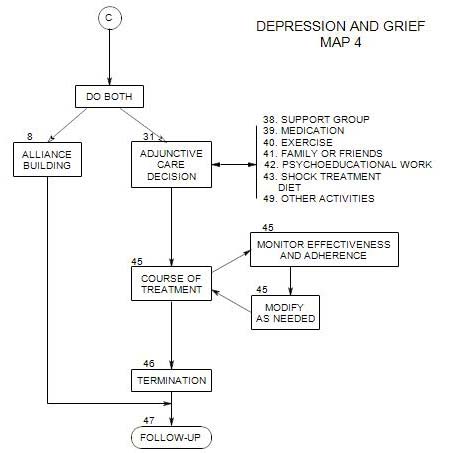DEPRESSION AND GRIEF MAPS: 1A | 1B | 2 | 3 | 4 | 5
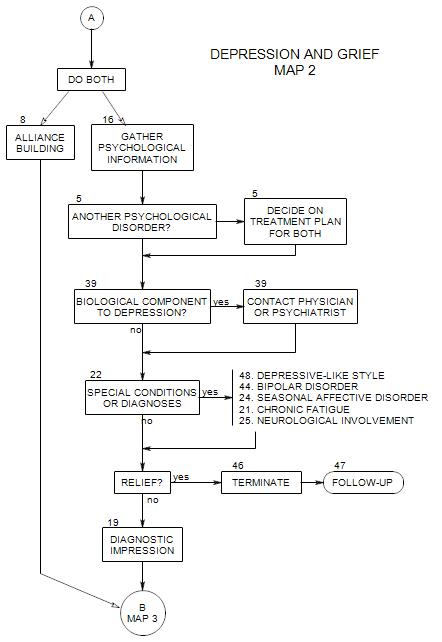
SECTIONS: 5 | 8 | 16 | 19 | 21 | 22 | 24 | 25 | 39 | 44 | 46 | 47 | 48

SECTIONS: 5 | 8 | 16 | 19 | 21 | 22 | 24 | 25 | 39 | 44 | 46 | 47 | 48
DEPRESSION AND GRIEF MAPS: 1A | 1B | 2 | 3 | 4 | 5
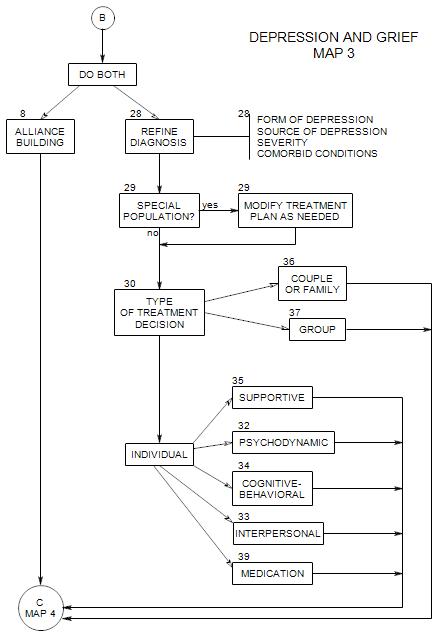
SECTIONS: 8 | 28 | 29 | 30 | 32 | 33 | 34 | 35 | 36 | 37 | 39

SECTIONS: 8 | 28 | 29 | 30 | 32 | 33 | 34 | 35 | 36 | 37 | 39
25. NEUROLOGICAL INVOLVEMENT
-
Follows Section 22 on Map 2
25a. Neurological Source of Depression
Any complaint which involves a neurological condition could be a contributor to the patient’s depression. Signs of neurological involvement can include…
- memory problem, recent onset
- recent loss of ability to concentrate
- history of possible head injury
- cognitive impairment
- early stages of dementia
Patients may be able to report some of these symptoms, not others. If you infer one of the problems, ask, then consider contacting the person’s physician for further information and possible treatment.
If the patient’s depression cannot be lifted by treating the neurological problem, then psychotherapy may be needed to deal with its consequences or with other sources of depression.
25b. Psychological Sources of Neurological Damage
Emotional and cognitive problems can also lead indirectly to neurological damage, e.g.:
- to alcohol abuse, falls, and head injury;
- to fights and head injury
- to poor health habits, obesity, or stress, and thus to hypertension with neurological consequences
